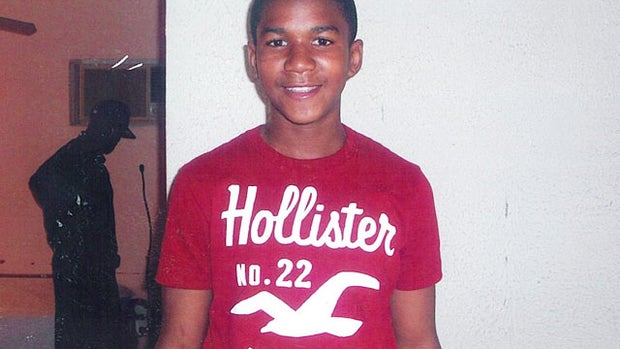FBI, others investigating Fla. teen's slaying
(CBS/AP) The FBI and Florida state investigators released statements Monday stating that they would be looking into the circumstances surrounding the death of 17-year-old Trayvon Martin in Florida last month.
Martin, who was black, was shot to death by 28-year-old George Zimmerman, described by police as white, during a confrontation in a gated community in Sanford, Florida. Zimmerman has claimed self defense, but Martin's parents and supporters claim there was a racial motivation to the killing.
In a statement, Department of Justice spokesman Xochitl Hinojosa said: "The Justice Department's Civil Rights Division, the U.S. Attorney's Office for the Middle District of Florida, and the FBI opened an investigation into the facts and circumstances of the shooting death of Trayvon Martin. The department will conduct a thorough and independent review of all of the evidence and take appropriate action at the conclusion of the investigation."
In the statement, Hinojosa cautioned that proving civil rights violations require removing all reasonable doubt, and that "negligence, recklessness, mistakes and accidents are not prosecutable under the federal criminal civil rights laws."
Florida governer Rick Scott has also asked state investigators to look into the shooting because "the circumstances surrounding the death of Trayvon Martin have causead significant concerns within the Stanfrod community and the state."
Zimmerman spotted Martin as he was patrolling his neighborhood on a rainy evening last month and called 911 to report a suspicious person. Against the advice of the 911 dispatcher, Zimmerman then followed Martin, who was walking home from a convenience store with a bag of Skittles in his pocket.
911 tapes released in Fla. teen's death
Fla. shooter's dad says he's no racist
Video: Kin, supporters rally for slain Fla. teen
Prosecutors may not be able to charge Zimmerman because of changes to state law in 2005. Under the old law, people could use deadly force in self-defense only if they had tried to run away or otherwise avoid the danger.
Under the new law, there is no duty to retreat and it gives a Floridian the right "to stand his or her ground and meet force with force, including deadly force," if he feels threatened.
Prosecutors can have a hard time making a case if there is no one else around to contradict a person who claims self-defense, said David Hill, a criminal defense attorney in Orlando. So far, Sanford police have said there is no evidence to contradict Zimmerman's claims.
"If there is nobody around and you pull a gun, you just say, `Hey, I reasonably believed I was under imminent attack. Hey, sorry. Too bad. But you can't prosecute me,"' Hill said, somewhat tongue-in-cheek.
Gun control advocates said the case is emblematic of permissive gun laws in Florida, which was among the first states to allow residents to carry concealed weapons. Florida was the first state to pass a "Stand Your Ground" law, which has been dubbed a "Shoot First" law by gun control advocates.
Currently, about half of all U.S. states have similar laws, said Brian Malte, legislative director of the Brady Campaign, which describes itself as the nation's largest organization dedicated to the prevention of gun violence.
"It's coming to dangerous fruition," Malte said. "There are more states like Florida."
The "Stand Your Ground" law's legislative sponsor, Florida Rep. Dennis Baxley, said it wasn't written to give people the power to pursue and confront others.
"That's not what this legislation does," said Baxley, a Republican. "Unfortunately, every time there is an unfortunate incident involving a firearm, they think it's about this law, and it's not."
